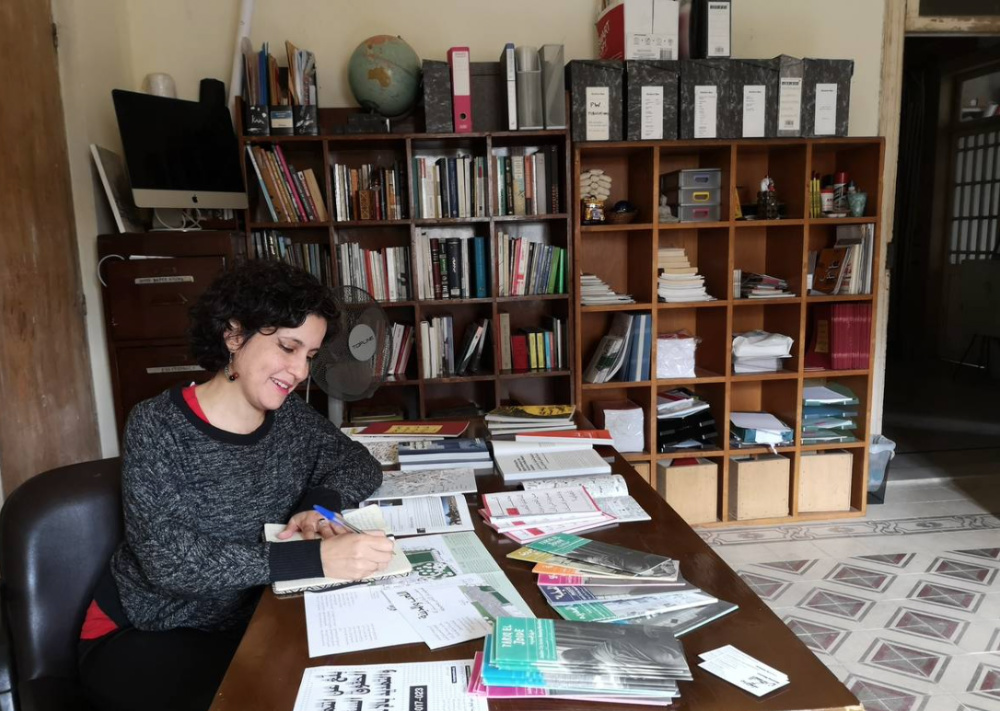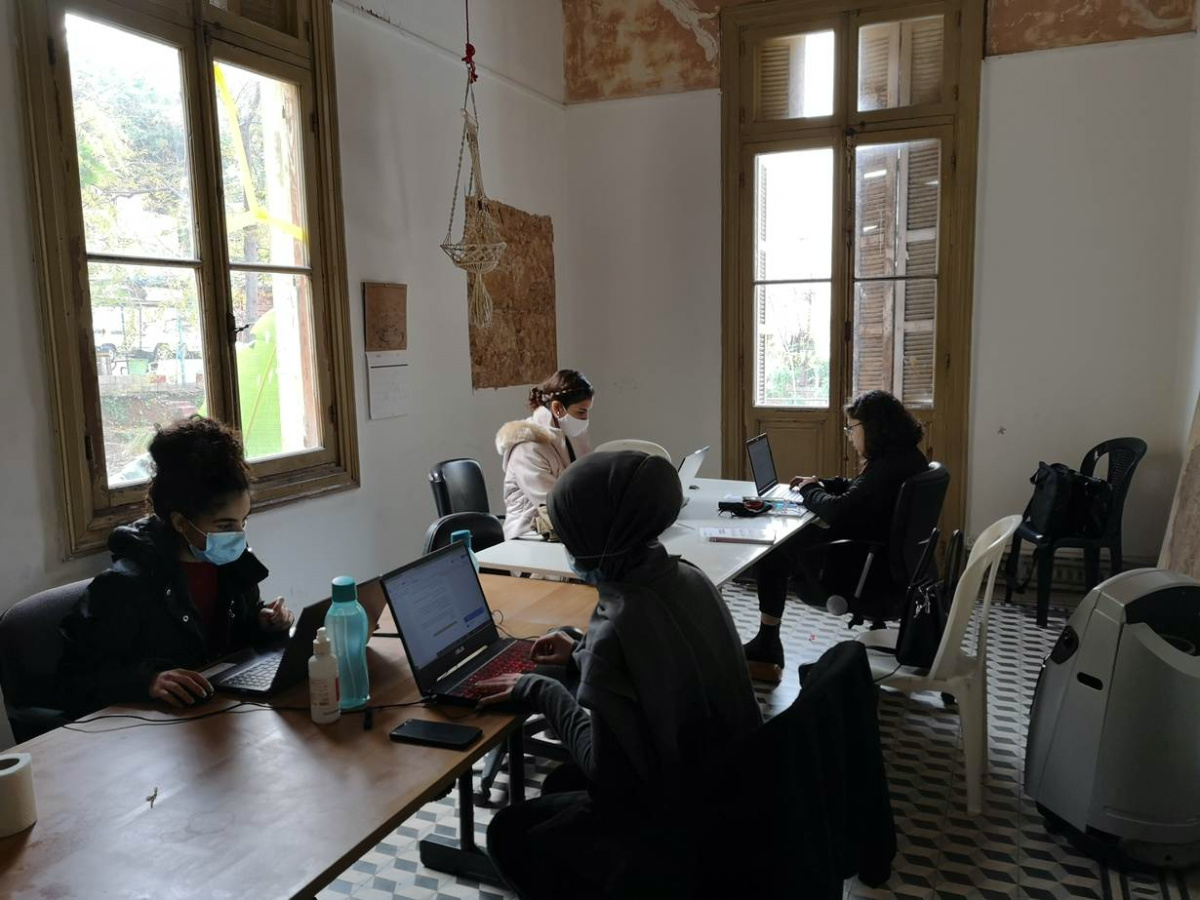
MAYA GEBEILY, of Thomson Reuters Foundation, reports on the work of Housing Monitor…
Beirut, Lebanon
Thomson Reuters Foundation
What could bring Syrian refugees, Sudanese migrants and marginalised Lebanese around the same table in Beirut? The threat of eviction – and the housing rights project trying to prevent it.
For decades, Lebanon’s housing policies – or lack thereof – have left the door open to illegal evictions, rent hikes, and real estate speculation, which disproportionately affect low-income tenants, activists warn.
Those risks were compounded in recent years as the Beirut port explosion destroyed thousands of flats, COVID-19 left many jobless and Lebanon’s economic meltdown prompted property owners to demand rent in US dollars instead of the collapsing local currency.
That’s where Housing Monitor comes in.

Nadine Bekdache, of Housing Monitor, takes notes in her office on 16th December. PICTURE: Maya Gebeily/Thomson Reuters Foundation.
The non-profit, run by research and design practice Public Works Studio, offers support to tenants facing eviction through a hotline, legal representation, and community organising that brings together refugees, migrants, and vulnerable Lebanese.
“By supporting tenants, we are shifting the balance of power. We are telling property owners: you can’t just do whatever you want,” said Nadine Bekdache, a manager at Housing Monitor.
“Housing Monitor shines a light on the injustices and empowers people to be able to report violations – evictions, abandoned properties, properties built without permission – and it holds government, companies and property owners to account.”
– David Ireland, head of World Habitat.
Earlier this month the project was named one of two gold prize winners at the World Habitat Awards that are organised with the United Nations housing agency (UN-Habitat).
“Low-income people in Beirut are subjected to countless examples of spatial injustice,” said David Ireland, head of World Habitat.
“Housing Monitor shines a light on the injustices and empowers people to be able to report violations – evictions, abandoned properties, properties built without permission – and it holds government, companies and property owners to account.”
Lebanon had rent control policies in place until the end of its 15-year civil war in 1990.
Old agreements continued at low rates – disincentivising landlords from keeping buildings in a good condition– as new ones were signed in a free-market economy with no caps, causing mass gentrification, according to housing analysts.
A 2017 law allowed property owners mostly in Beirut and its suburbs to gradually hike up rent, prompting many low-income families to move out of the city.
Over the last two years, Housing Monitor has fielded more than 600 housing injustice reports such as evictions, most of which required targeted interventions by their staff and volunteers.
The group said it has prevented the evictions of more than 90 households and helped hundreds of other tenants negotiate improved housing security.

Volunteers at Housing Monitor, a tenants rights advocacy group, field calls from tenants facing threats of eviction in Beirut on 16th December, 2021. PICTURE: Thomson Reuters Foundation/Maya Gebeily
The first step is the hotline service, set up in an old Lebanese home-turned-coworking space.
Bekdache said Housing Monitor receives about 50 calls a month, some of which are clarification questions on rent agreements and others which require proper follow-up.
“You need to be served a court order to be evicted. And if you’re evicted before your three-year rental contract is up, your landlord is violating the law. Most people don’t know these things,” she said.
For cases requiring legal intervention, Housing Monitor’s volunteer lawyers exploit gaps in Lebanese legislation and set out cases built on international protocols to defend tenants’ rights.
The Beirut port explosion brought a new flood of cases, damaging more than 70,000 apartments housing over 290,000 people, according to UN Habitat.
Many of the worst-affected neighbourhoods had been occupied by low-income families or through informal rental agreements.
We rely on our readers to fund Sight's work - become a financial supporter today!
For more information, head to our Subscriber's page.
After NGOs refurbished those homes, landlords in many cases tried to bump up rent – claiming the apartment was now worth more, Housing Monitor says.
By connecting at-risk tenants, the project says it has forged solidarity among refugees, migrants, and Lebanese – three communities typicaly siloed off from one another.
“It’s very lonely to be threatened with eviction – so it’s obviously very empowering when these tenants get together and share their stories,” said Bekdache.
Public institutions are fraying due to rolling worker strikes and power outages, and Bekdache said limited courthouse hours were slowing down Housing Monitor’s legal advocacy efforts.
Still, the group is thinking ahead.
It has already begun gathering data in Lebanon’s poorest city Tripoli, the southern port city of Saida, and Baalbak further east.





